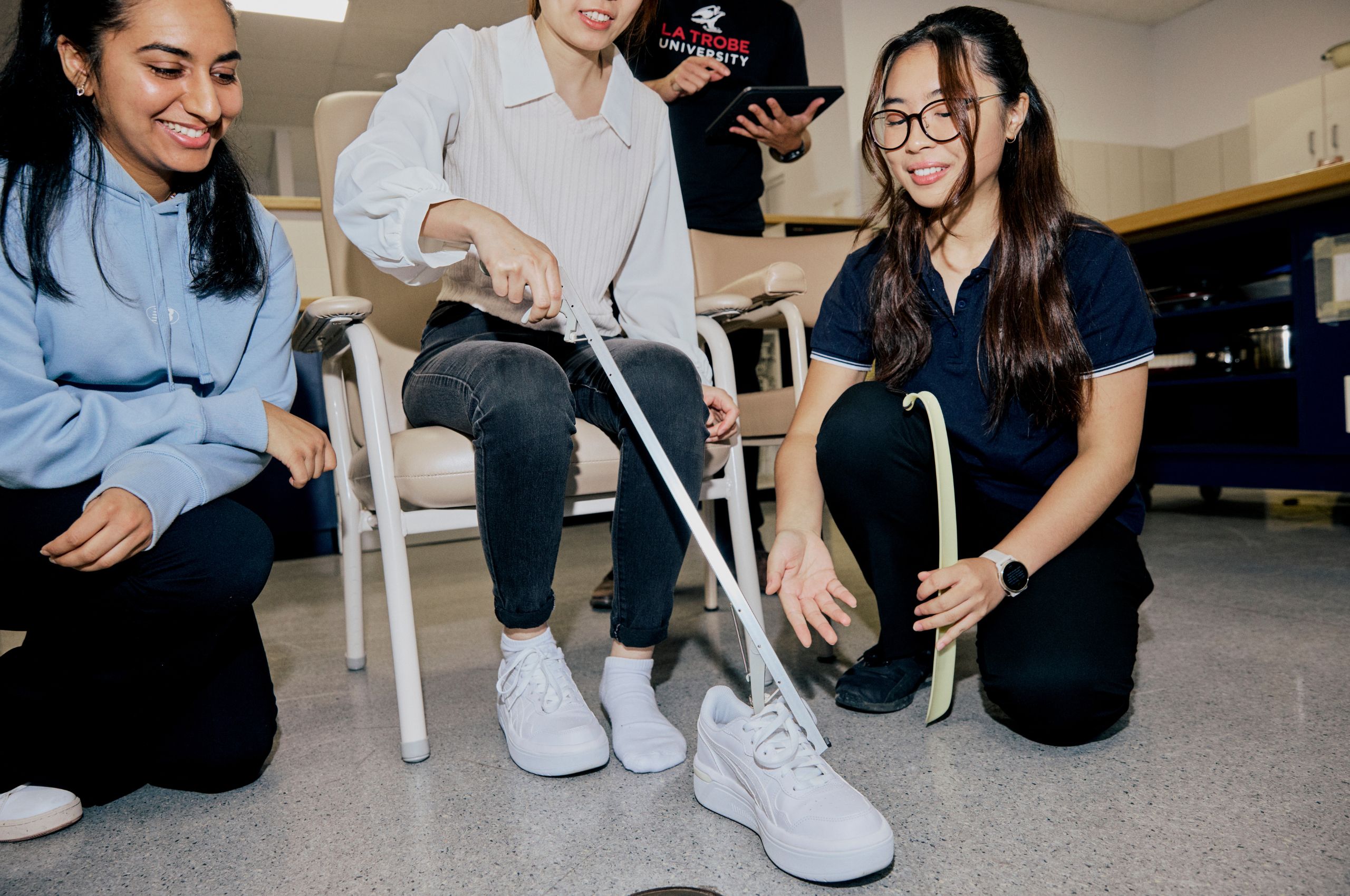Study with the Department of Rural Allied Health

We are meeting rural workforce challenges by attracting students from rural areas, providing them with rural placements, and producing graduates who are proud to build their careers in regional areas.
Our contemporary, evidence-based courses in exercise physiology, occupational therapy, paramedicine, physiotherapy, social work, speech pathology, and sport and exercise science focus on practical skills in rural health and on preparing students for careers that are professionally rewarding and personally fulfilling.
Our postgraduate research degrees, and continuing professional development programs, give health professionals the opportunity to upskill, reskill, advance into leadership roles, or pursue research.
Courses
Supportive learning
Our students are taught by knowledgeable and caring academic staff. They learn in a supportive environment where they are encouraged to develop the practical skills and theoretical knowledge they need to graduate with confidence.
With access to our extensive network of rural healthcare services and industry partners, our students can connect with peers, academics and rural health professionals to build new knowledge and practices together.
We actively engage with student representatives, hosting regular forums to stay attuned to the evolving needs of our student cohort. Our commitment to small class sizes ensures that students have easy access to our dedicated staff and state-of-the-art facilities.
Students can engage socially through a range of associations, including the La Trobe Rural Health Club. School and campus events also provide students with opportunities to connect with peers across the University, and network with members of their future profession.
Placement experience
Our Work Based Learning and clinical placement programs allow students to use their knowledge and skills in a range of professional settings, preparing them to make valuable contributions to health when they graduate.
Students are equipped with workplace skills and confidence, the chance to develop their own professional networks, and the opportunity to experience what it is like to live and work in rural communities.
They also benefit from our strong partnerships and industry connections in the rural health sector, which span regional and rural Victoria, and border town communities.
We pride ourselves on our close partnerships with local communities and health services, which have led to a range of place-based opportunities in rural and remote health, aged care, disability and other community services.
A global perspective
The Department of Rural Allied Health is globally connected with many international partners. Staff and students are encouraged to take a world view of health and wellbeing.
Many of our staff actively participate in collaborative research projects spanning Asia, North and South America and Europe.
Students have opportunities for short overseas placements, enhancing their learning and personal development.
Additionally, our innovative Collaborative Online International Learning (COIL) experiences enable students to engage in multicultural classroom learning with peers from around the world. This approach not only builds intercultural communication skills but also nurtures the development of effective global citizens.
